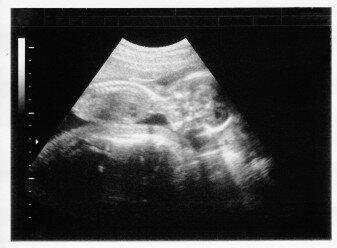Prenatal Testing: 'Information Is Not Neutral'

Genetic testing, and prenatal screening more broadly, have become a fact of modern pregnancy. As an Ashkenazi Jewish couple, my wife and I have been tested for a staggering array of disorders, a number that has expanded with each of her three pregnancies. From well-known illnesses like Down syndrome to virtually unknown ones, many of which are specific to certain ethnic groups such as ours, these tests offer a degree of knowledge about your growing baby that previous generations would have considered unimaginable or the stuff of science fiction.
Parents.com recently published a series of articles on prenatal genetic testing, which explain the "whats" and "whys" of the process, but it was one article on the emotional side of genetic testing that caught my eye. This is a part of the process that I find is rarely discussed. In our data-driven, Google-at-our-fingertips culture, we are hungry for more information. But what do we do with that information once we have it? That's where prenatal testing gets difficult--and, for some, is a reason to avoid it altogether.
Doctors often perform these prenatal screening tests as a matter of course, and just assume that that knowledge is essential. However, the implicit--and sometimes explicit--assumption of testing seems to be that a woman will abort her pregnancy if a serious problem is discovered. And that's obviously not a choice everyone is willing to make, regardless of the consequences.
My wife and I struggled with this issue with every pregnancy and even before we started trying to conceive the first time. Would we bring a child into the world knowing he or she will suffer greatly or live a tragically short life? Where is the line between loving every life and having compassion on a suffering being? What diseases would we consider too horrible for a child to suffer from and which ones might be manageable?
The issue is more than theoretical to us. Our sweet, resilient, and amazingly positive 15-year-old nephew has a rare disorder called Familial Dysautonomia, a neorological disease that he's dealt with since birth. As a result, he is developmentally delayed, consumes food through a stomach tube, can be difficult to understand when he speaks, suffers from frequent pneumonias, cannot feel pain, had major back surgery recently, and deals with countless other health problems. In addition, a dear friend of ours died several years ago in her early 30s from Cystic Fibrosis. Today, both of these disorders are among the many diseases tested for as a matter of course in prenatal testing. (Showing just how effective screening has become, some diseases typical of Jews are mostly affecting non-Jews these days, having been, in effect, "screened out" of the Jewish population.)
In contemplating this blog post, I turned to the best source I know of for advice on prenatal testing, Amy Julia Becker, an occasional Parents.com contributor and author of What Every Woman Needs to Know About Prenatal Testing: Insights from a Mom who has Been There (a book I offered an endorsement to). Amy Julia has written movingly about her daughter Penny, who has Down syndrome, and the challenges and joys Penny has brought to their family--and what her experiences have taught her about navigating the world of prenatal testing.
Amy Julia emailed me these bits of advice for people considering whether to have prenatal testing and concerned about what to do with the results:
Because every pregnant woman will be offered prenatal testing for genetic conditions, every pregnant woman should spend some time thinking about what genetic information she wants about her baby and why she wants that information. Information is not neutral.
Doctors can provide a medical context for genetic conditions, but they are not trained to offer a social, educational, or familial context. As a result, many pregnant women receive a prenatal diagnosis with lots of medical information that seems partial or less significant than a fuller picture of life with the genetic condition might offer. Women need to seek out counsel and information that goes beyond the medical realm.
Spending time with a family or two who have children with that condition can be a helpful way to begin to imagine a different life, full of new possibilities even as it is also full of new challenges.
In the end, my wife and I decided to have most of the tests--not because we knew what we'd do in every instance and eventuality, but because we felt that knowledge is power. Knowledge would allow us to learn, prepare, speak with others, assemble our support network, and steel ourselves for what is to come. We are planners. And these tests would have allowed us to plan. Thankfully, we've never had to face these questions beyond the theoretical realm, a conclusion that we are extremely grateful for.
Ultrasound image via Shutterstock.
